The kashrut Jewish dietary laws are quite complex. There are many variations, not to mention that the rules are different during Passover. So, you might wonder whether potatoes are kosher. To answer this question, we've researched which vegetables are not only kosher but also acceptable Passover foods.
Potatoes are kosher, including during Passover. However, the laws of kashrut are complex, and many types of foods are not kosher. While some vegetables are kosher year-round, others are not, including during Passover. Please also bear in mind, there are different Jewish traditions both locally and worldwide that influence dietary guidelines.
It is important to serve kosher potatoes in a way that will maintain the laws of kashrut. Continue reading as we delve into the fundamentals of Jewish dietary laws and how to best select and cook foods within these restraints.
![Raw potatoes heap shot from above on rustic wooden table, Are Potatoes Kosher? [Including For Passover]](https://kitchenseer.com/wp-content/uploads/2021/02/Are-Potatoes-Kosher-Including-For-Passover1.png)
What Makes Food Kosher?
Jewish dietary laws are called kashrut. Kashrut is a set of guidelines describing what Jews can and cannot eat. Since these guidelines evolved according to the areas where Jews lived and the dietary staples in those areas, there are minor differences regarding what is considered kosher for Passover.
Proteins - Meat, Fish, & Fowl
The rules about proteins are clear. All Jews agree about the meat and fish they can eat. It is widely known that Jews cannot eat pork. Kosher meat includes all mammalians that chew their cuds and have split hooves. However, pigs do not chew their cud and therefore are not kosher.
Most fowl is kosher. There is a shortlist of non-kosher fowl, provided in Leviticus chapter 11 verses 13-20. Interpretation of modern-day fowl varies based on local traditions.
Fish has to have scales and gills. That is why lobster is not kosher, but trout is kosher. So long as fish has scales and gills, it is considered kosher.
Vegetables
The rules of what fruits and vegetables can be consumed are different. Root vegetables as a whole are safe to eat. There are many traditional Passover dishes with root vegetables. Tzimmes is a carrot and sweet potato casserole that is popular amongst Ashkenazi Jews.
Kosher for Passover is even more in-depth. For most of the year, any food that would be considered vegan is kosher, as long as it was produced in a kosher manner, under supervision.
Grains
Passover has additional laws concerning grains and legumes. Jews from countries where rice was not a part of the staple diet ban rice, corn, and legumes during Passover. The rest will allow for rice, corn, and legumes. Matza, the special cracker that Jews eat during Passover, is made of wheat. Wheat products are kosher for Passover as long as rules of the processing methods are followed.
Dairy
Milk, by itself, is generally kosher, and so are eggs. Dairy products are kosher as long as they are produced in a kosher manner. The laws of Kashrut prescribe the separation of meat and milk. That means that either meat or dairy can be served in one meal, never both.
Mashed potatoes, for example, served with steak are fine as long as they are dairy-free. You can use chicken broth or any of the other dairy-free substitutes suggested in this article: What To Substitute For Milk In Mashed Potatoes.
Why is Kosher food more expensive?
Most people do not know how to bring food to market in a kosher manner. Therefore there is a profession called kashrut supervisor. A kashrut supervisor's sole purpose is to oversee the whole process of food production from slaughter to packaging, from field to market. The cost of having a kashrut supervisor adds to the total cost of food.
The market for many kosher foods, especially meat, is smaller. Since the market is smaller, the production is more expensive. The supply-demand balance translates to higher costs, especially with meat, where the processing is different from conventional processing.
However, some food manufacturers find the additional cost for a kashrut supervisor worth it. Many foods in the American supermarket are kosher. Items that do not contain milk can easily be manufactured in a kosher manner. So long as you know what to look for, they are easy to find. A partial list of symbols that signify that a food item is kosher can be found here.
Can You Eat French Fries During Passover?
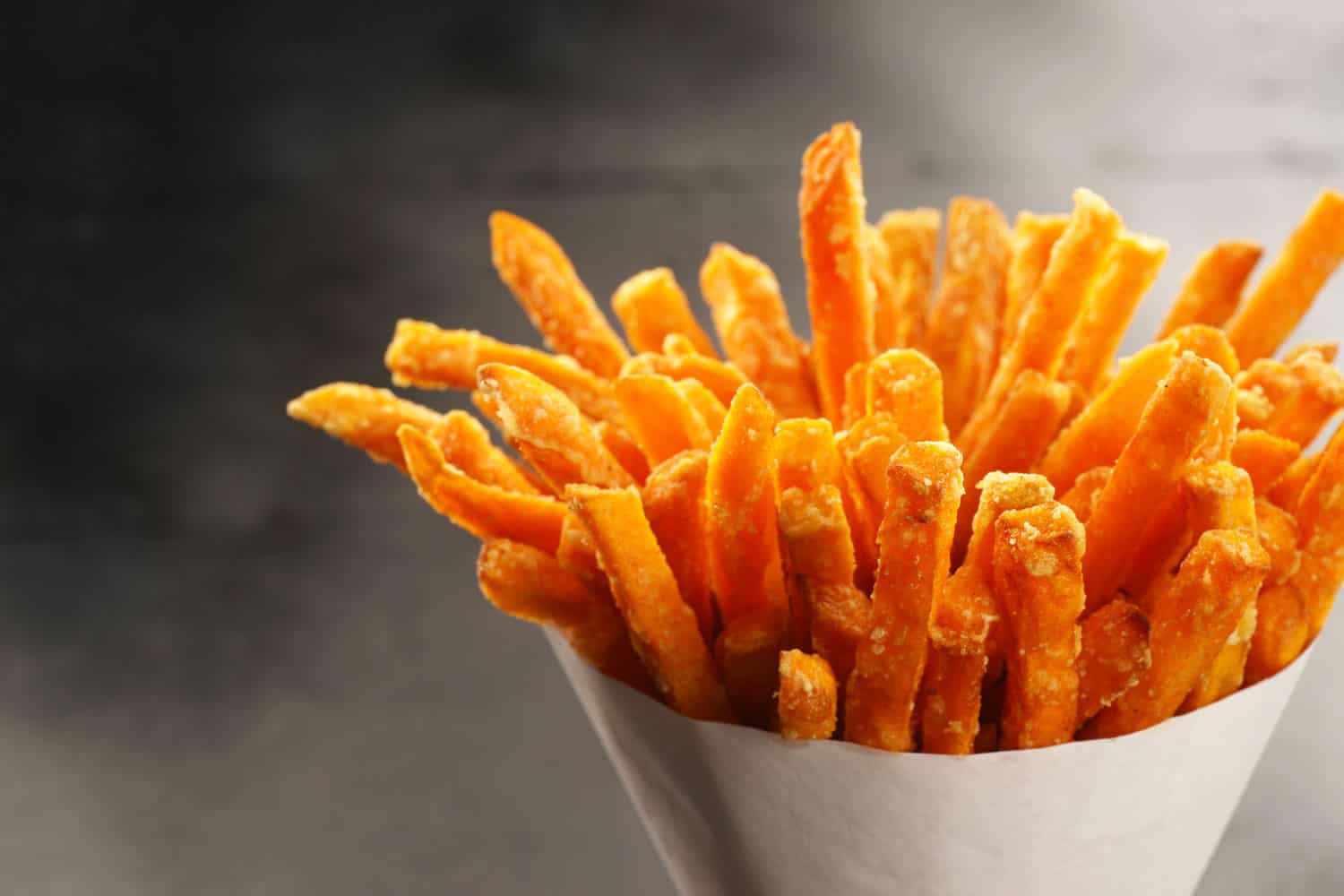
So, potatoes are kosher for Passover. It makes you wonder, what about french fries? The short answer is yes. Frech fries are kosher for Passover as long as the preparation process is kosher for Passover.
When deep-frying the french fries, use only kosher for Passover oil. Peanut oil might not be kosher for Passover. Neither is an oil containing corn. Peanuts are not kosher for Passover for Jews of European descent. Corn also is not kosher for Jews of European descent.
However, as long as the french fries are fried using the right oil, they will be considered kosher for Passover. While french fries are kosher for Passover, a more popular Passover potato dish is the kugel.
What Vegetables Are Not Kosher For Passover?
We touched on it a little when we discussed what makes food Kosher. Most vegetables are kosher. Sephardic Jews from the Middle East and Northern Africa have fewer restrictions. Ashkenazi Jews of European descent refrain from eating kitniyot during Passover. All Jews consider grains hametz or not kosher for Passover.
Grains such as wheat, barley, oats, and rye, are strictly forbidden. However, kitniyot, which is most legumes and corn, are forbidden only to Ashkenazi Jews. Instead of corn starch, potato starch is often used to thicken sauces during Passover. Rice is also forbidden to Ashkenazi Jews yet a staple for Sephardic Jews.
The following list, adapted from the OUKosher, the world's largest kashrut certifying agency, includes vegetables that are not kosher for Passover:
- Anise
- Beans
- Buckwheat
- Caraway
- Carob
- Cardamon
- Chia seeds
- Corn
- Coriander
- Cottonseed
- Cumin
- Edamame and all soy products
- Fennel seeds
- Fenugreek
- Flaxseed
- Green beans
- Guar gum
- Hempseed
- Lentils
- Millet
- Mustard
- Peas
- Poppy seeds
- Rapeseed
- Rice
- Safflower
- Saffron
- Sesame seeds
- Soybeans
- Sunflower seeds
- Teff
Though this list applies to Ashkenazi Jews, many of these items are kosher for Sephardic Jews. In the US, the most popular kashrut agencies follow the Ashkenazi traditions for Passover.
But Matzah Is Made of Wheat!
And so it is. Matzah is an unleavened bread that is baked according to the rules of kosher for Passover. The process is done in haste to commemorate the unleavened bread of the slaves that left Egypt in haste all those millennia ago.
Today there are many workarounds the wheat restrictions. Besides almond flour, which is kosher for Passover, you can get kosher wheat flour. Bread, cakes, and other delicious baked goods are now welcomed at the table during Passover. Many of these flours are gluten-free, although not those deriving from Matzah.
Check out this kosher for Passover flour from Amazon.
Before You Go
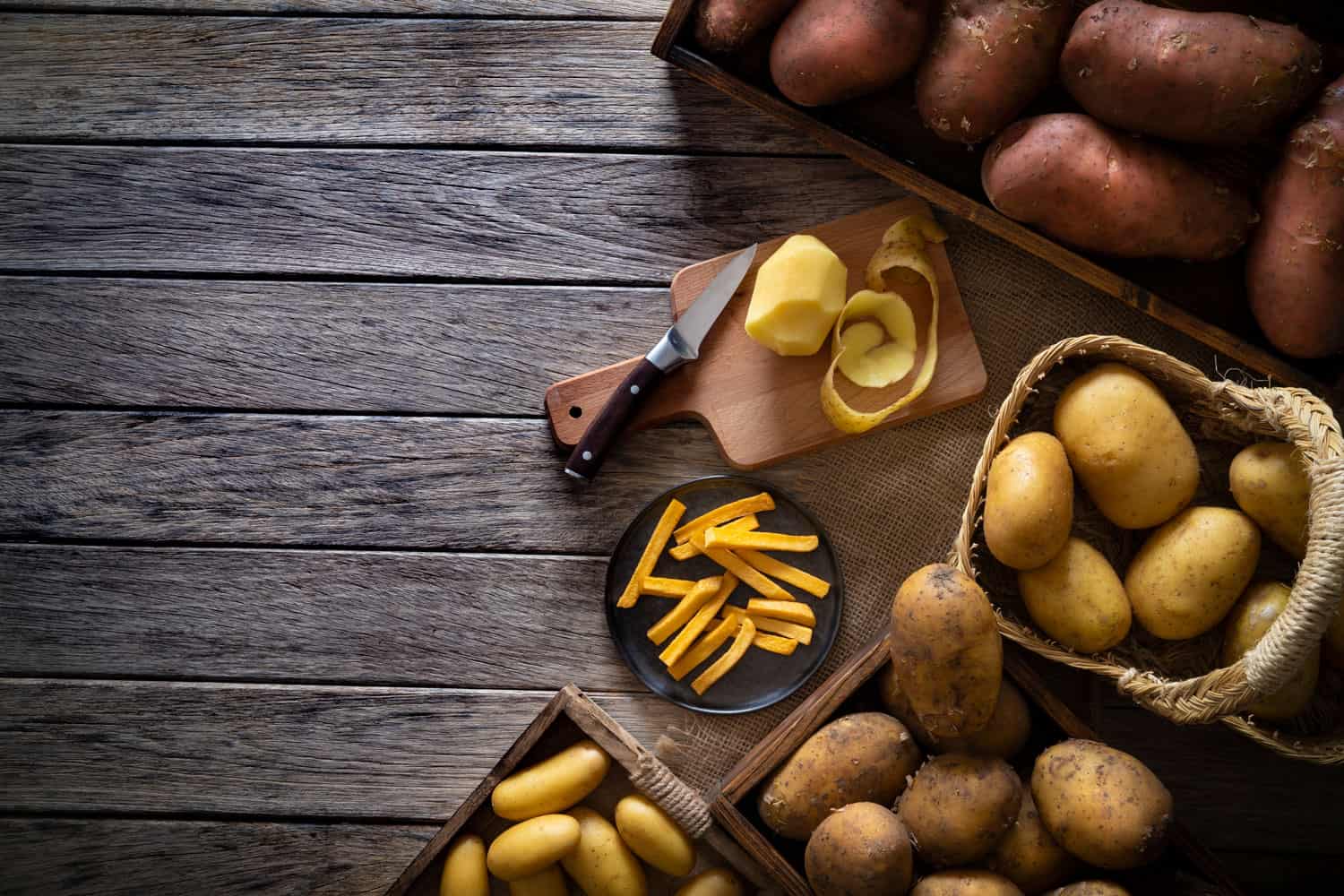
Even though Jewish dietary laws can be confusing, it is clear the potatoes are kosher, including for Passover. That is why they are so popular during the holiday. With so many other forbidden vegetables, potato-based dishes are an easy choice!
For more ideas on how to cook potatoes, you can read: How To Properly Sauté Potatoes – With 3 Yummy Recipes!



![A bowl filled with fresh french fries, How Big Is A Serving Of French Fries? [And How Many Fries Are In One?]](https://kitchenseer.com/wp-content/uploads/2021/09/A-bowl-filled-with-fresh-french-fries-250x250.jpg)
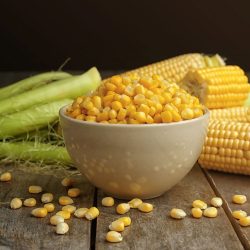
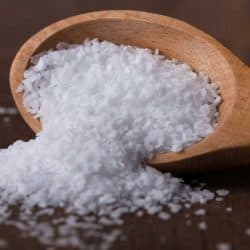
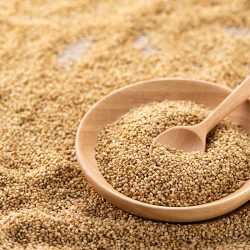
![Grilled tenderloin with French fries and salad, How To Grill French Fries [Inc. 11 Must-Try Recipes]](https://kitchenseer.com/wp-content/uploads/2021/09/Grilled-tenderloin-with-French-fries-and-salad-250x250.jpg)
While I aknowledge and respect alot of the kosher ways,, I thought also the production is regimented and strict. I’d separate knives, cutting boards, as well as certain oven and pan restrictions?